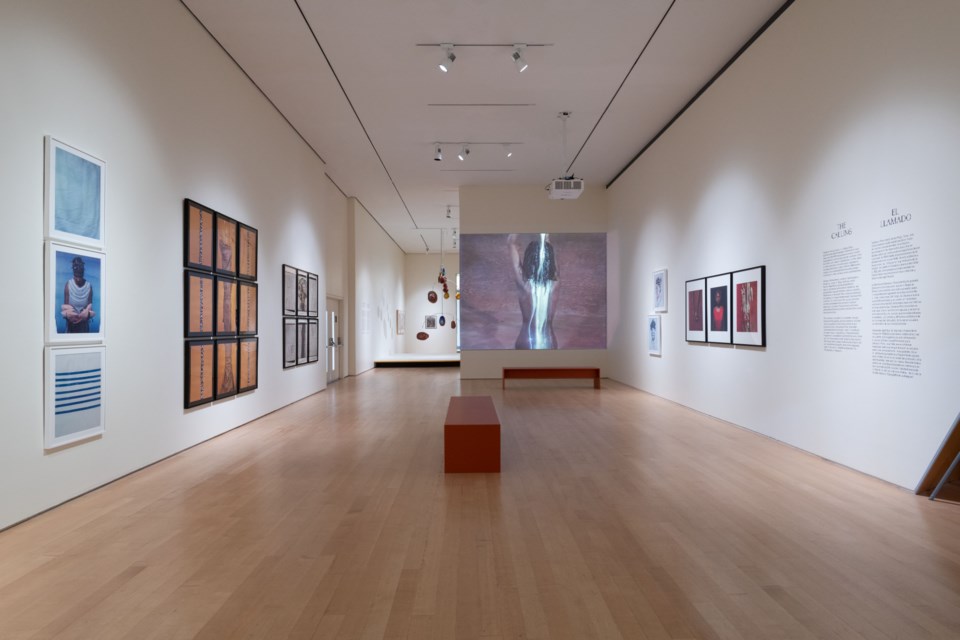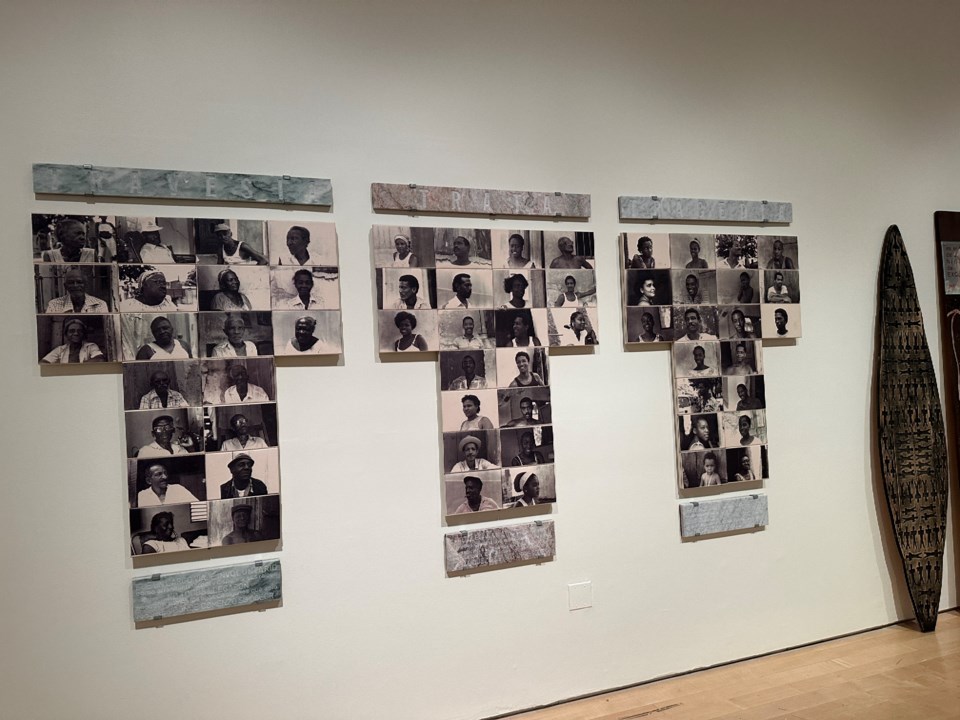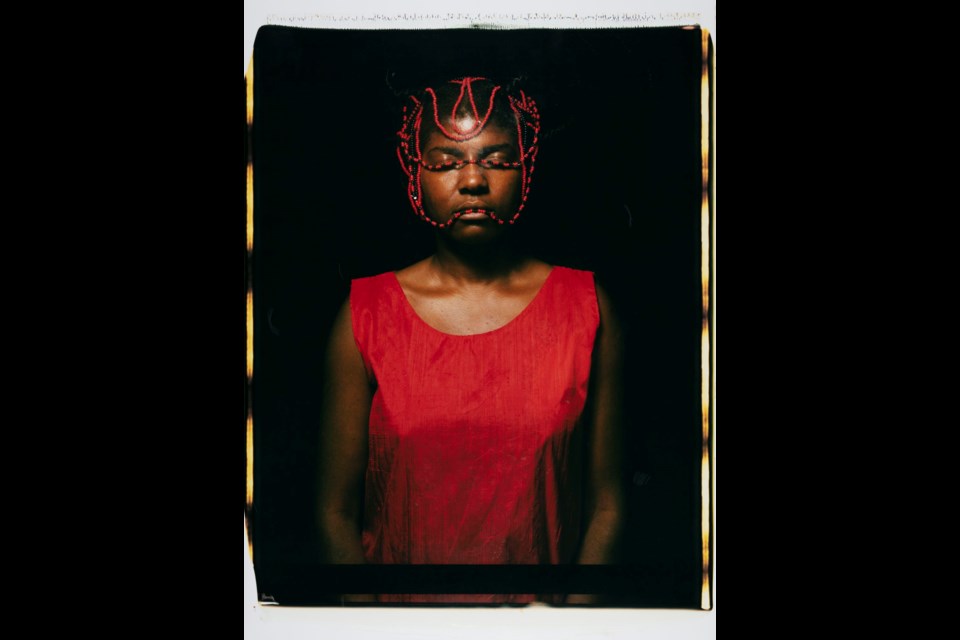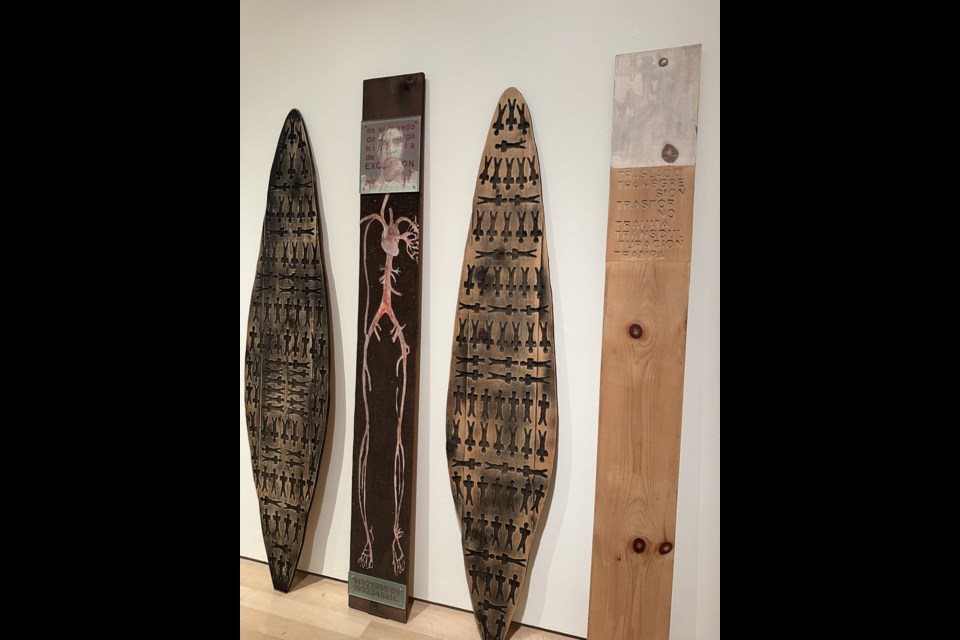The fourth floor of the Brooklyn Museum was transformed last week into an evocative time capsule highlighting more than four decades of art by Maria Magdalena Campos-Pons exploring womanhood and Cuban American history.
The exhibition, titled Behold," was organized by the Brooklyn Museum and the J. Paul Getty Museum and will run from now until Jan. 14, 2024.
The multimedia display features more than 50 photographs, performances and paintings from the artist and her collaborators, including sound artist Neil Leonard and fashion designer Zinda Lee Williams.
Pulling from her family history, Campos-Pons takes viewers on a geographical journey to examine topics including migration, slavery, labor and womanhood. The exhibit is organized into themes: "The Calling," "Voyeurs and Beholders," "Honoring Labor," "Extreme Weather," "Roots & Routes" and "Process & Performance." Each section examines the intersectionality of the many identities of Campos-Pons as a Cuban American woman.
“We are honored to show this work in Brooklyn Museum's feminist center,” Carmen Hermo, the associate curator of Elizabeth A. Sackler Center for Feminist Art at Brooklyn Museum, told BK Reader. The fourth floor of the museum also houses "The Dinner Party," an iconic feminist installation by Judy Chicago.

"Audiences in Brooklyn — most with their own stories of migration and connection — are already responding to seeing these stories in a major museum. New York can be a bit of a navel-gazing art scene, so we can all learn from how Campos-Pons redirects our attention to these incredible geographies of creative flowering,” Hermo said.
Upon entering the exhibit, guests are instantly immersed in the artist's life. Visitors are welcomed by “Spoken Softly with Mama,” a sculpture in a trilogy created in 1998 by Campos-Pons entitled “History of People Who Were No Hero.”
The sculptural installation is made of ironing boards layered with silk and image transfers inspired by a phone conversation between Campos-Pons and her family.
The installation joins together sounds by Leonard and projected videos of homemakers who represent the often-forgotten labor of Afro Cuban women throughout generations.
“All these pieces kind of tell the story of the perception of what it is to be part of the Black experience in the African diaspora,” Campos-Pons told BK Reader. “This is the altar for these women… For the labor that they performed for others, but also to present it in a way that is elegant and beautiful and dignified as they were.”
Campos-Pons uses her art in the exhibition to illustrate her migration from Cuba to America in 1991. Her pieces also explore the Transatlantic slave trade and its impact on generations of Afro Cuban people, using a motif of water to symbolize memory and mourning.

"TRA," made of corkboard, emphasizes the story of the travesía, trata and tragedia — Spanish for the crossing, trade and tragedy — of the many Africans transported over the middle passage — the route across the Atlantic from West Africa to the West Indies or America that was the route of the slave trade — during the slave trade.
The exhibition also pays tribute to recent events that have occurred in America, including the pandemic and the murder of Breonna Taylor in 2020.
“[I want] people to come out of this exhibition thinking, ‘I want to come back,’” said Campos-Pons, adding that she wants people to dive deeper into learning about Afro Cuban history and art while finding more about themselves.
“The art is an experience that expands your possibilities or how you see yourself, and I want people to come out of here with new knowledge, their sector of new possibilities and new visions. That's my heart," Campos-Pons said.
For more information on the exhibit and to get tickets, go here.





.png;w=120;h=80;mode=crop)
